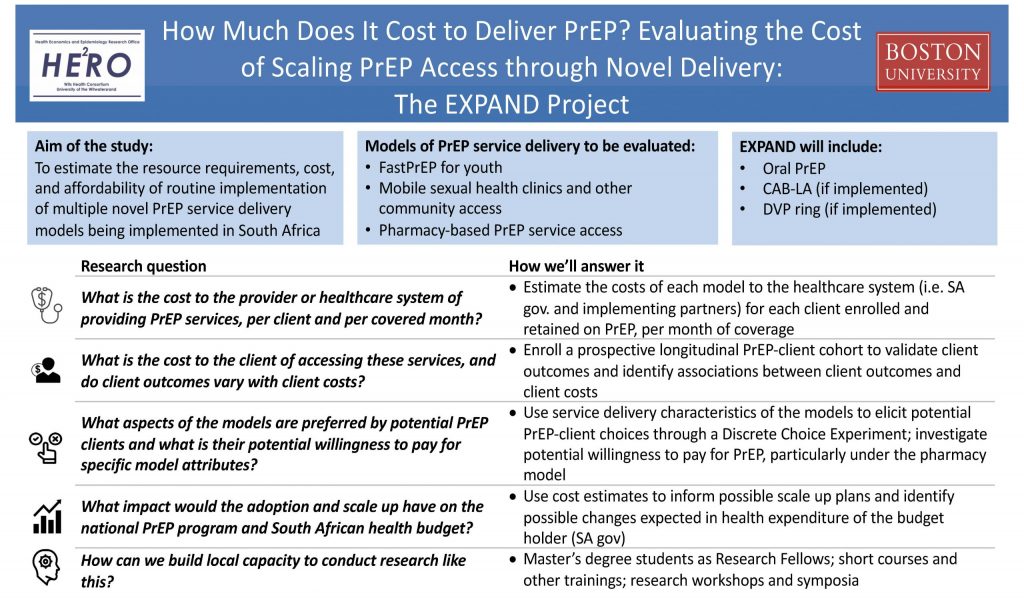EXPAND: Evaluating the cost of scaling PrEP access through novel delivery
South Africa’s success in scaling up treatment to people living with HIV has not been matched in the area of HIV prevention. In 2019 there were an estimated 200,000 new HIV infections. Combination HIV prevention strategies now include effective biomedical interventions, including pre exposure prophylaxis (PrEP). In December 2016, South Africa released guidelines for the provision of PrEP to high risk groups. Initially, South Africa was targeting PrEP to four populations—men who have sex with men (MSM), sex workers (SW), serodiscordant couples, and adolescent girls and young women (AGYW) –through a phased roll out at designated pilot sites. Since then the program has been expanded to public health facilities and in 2020 updated guidelines were released to ensure PrEP integration into standard of care at primary health clinics.
Implementers of PrEP interventions in South Africa currently have little evidence on how to design their programs to improve uptake and persistence, nor what resources are needed to deliver PrEP effectively to different populations. To help generate the evidence needed, the Bill & Melinda Gates Foundation is sponsoring three local partner organizations to conduct demonstrations of different models of service delivery for PrEP. These demonstration projects offer a promising opportunity to estimate the resource utilization, costs, and affordability of PrEP, as delivered using different platforms, in South Africa. Unlike previous clinical trials, the demonstration projects will approximate routine service delivery conditions, making the cost estimates relevant to national budget planning and scale-up decisions.
EXPAND is a stand-alone project to estimate the economic outcomes of the PrEP demonstration projects described above. It is led by HE2RO, with technical assistance from Boston University.
